The packaging that wraps, contains, and transports our food and clothing has a big impact on the environment. With public awareness growing around responsible business, brands are responding with innovative new sustainable packaging solutions that are kinder to the planet.
Packaging makes up a significant portion of waste going to landfills. And many conventional materials like plastics, styrofoam, and multilayer films are difficult or impossible to recycle.
Sustainable packaging keeps food fresh and safe, creates a full lifecycle for ethical fashion, while also using eco-friendly materials, thoughtful design, and circular lifecycles.
Here are some of the most exciting innovations in sustainable packaging along with real brand examples using them today:
Compostable Bio-Based Materials
Plant-based, compostable materials offer renewable alternatives to conventional packaging derived from fossil fuels.
For instance, fiber-based containers, bags, and wraps can be made from agricultural residues like bamboo, wheat straw, sugarcane, and more.
Brands like Loliware create compostable straws, utencils and cups from seaweed, while Tipa makes highly functional flexible packaging using plant-based materials that disappear when composted.
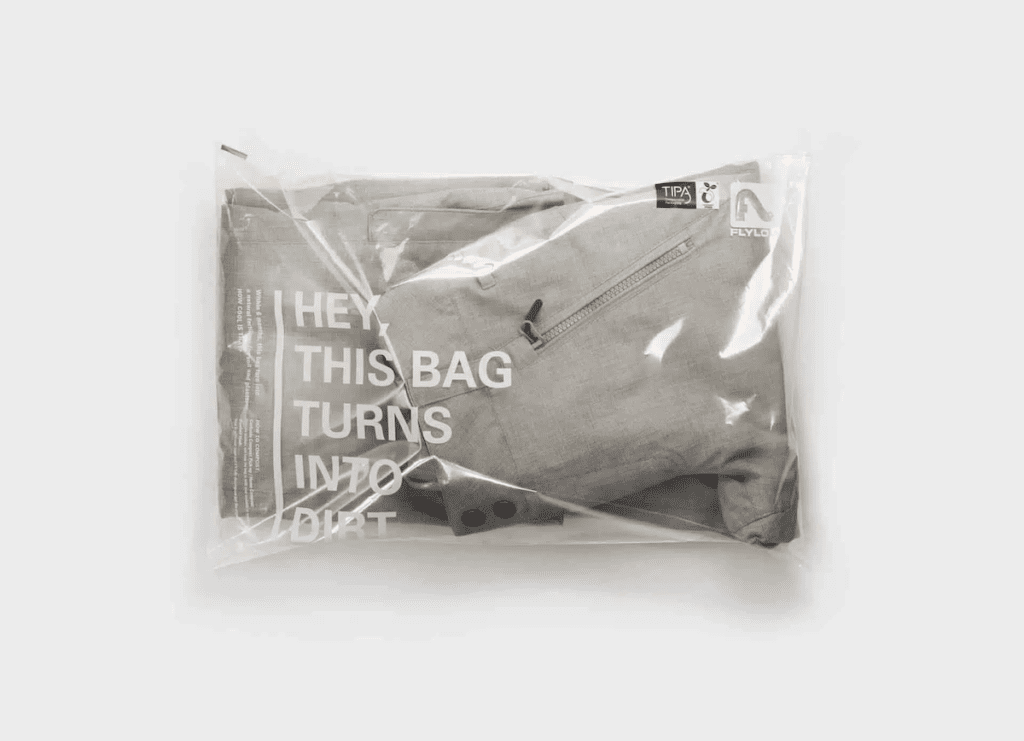
Origin Materials created a bio-based material to replace the layers of plastic in flexible pouches and films. Their renewably sourced material provides needed barrier properties and won’t leave harmful microplastics behind when composting.
Mushroom Sustainable Packaging
Ecovative creates protective packaging using mycelium, the root structure of mushrooms. The mycelium is grown around a mold in the desired packaging shape, naturally binding together agricultural byproducts like corn stalks and husks.
The packaging is durably molded yet completely compostable.
Once used, it breaks down into nutrient-rich soil that can fertilize home gardens or farms. Ecovative offers alternatives to polystyrene, plastic, and styrofoam with their renewable mushroom material.
Coconut Packaging
Fortuna Cools offers an eco-friendly insulated shipping container that keeps products cool while reducing environmental impact. Their innovative Nutshell Cooler replaces standard expanded polystyrene foam coolers with a renewable, compostable design.
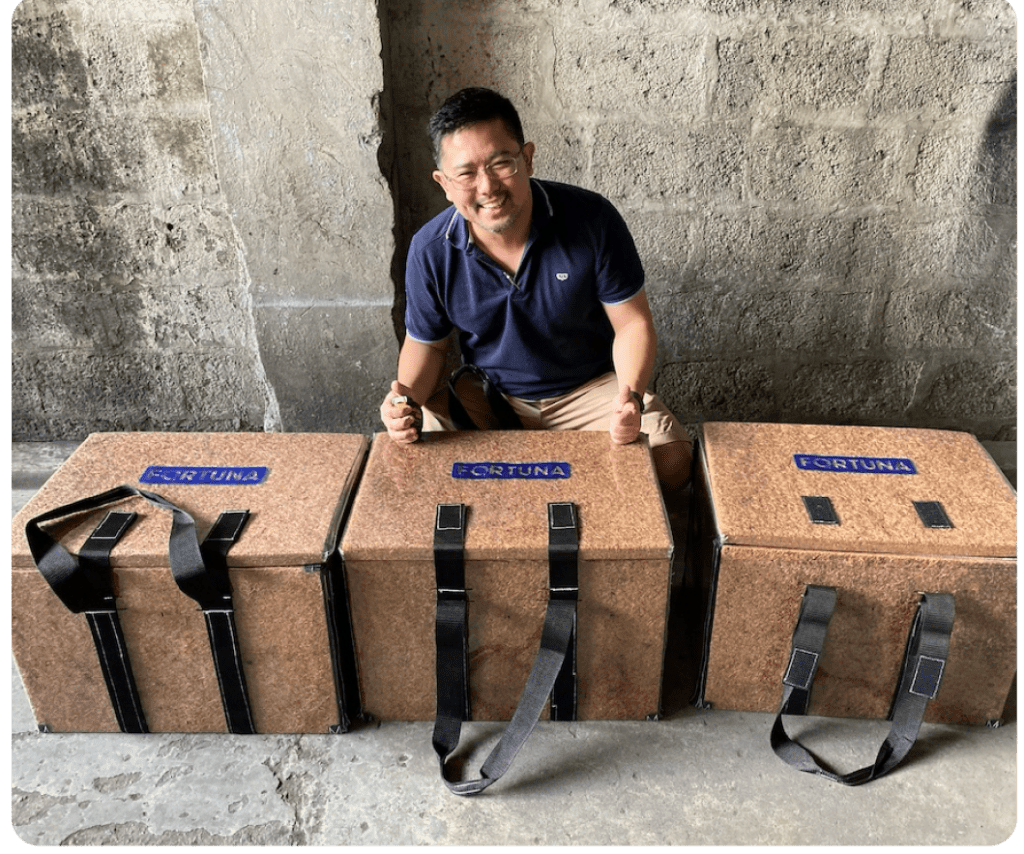
The cooler is insulated using repurposed coconut husks, which take advantage of an abundant agricultural byproduct. The interior liner contains recycled synthetic materials to add durability without compromising sustainability.
Fortuna Cools makes it simple for suppliers to replace conventional Styrofoam coolers. With competitive pricing and drop-in integration, businesses can adopt an eco-friendly shipping solution when existing foam boxes need replacement.
Check out our interview with Fortuna Cools and Nutshell Coolers Co-founder, David Cutler.
Plastic-Free Compostable Coffee Pods
The company Halo makes coffee pods out of bamboo fiber instead of plastic or foil. The pods break down completely in commercial composting facilities within a few months.
They provide the convenience of single-serve pods without plastic waste or difficult recycling.
Edible Pouches
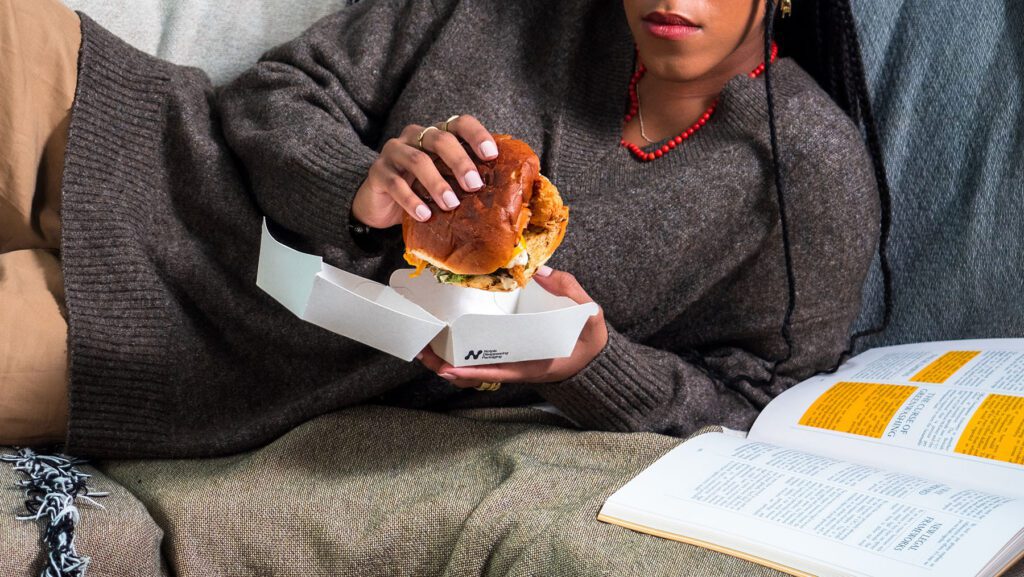
Notpla creates flexible pouches and packaging out of seaweed that are completely edible and biodegradable in 4-6 weeks. Their material dissolves in water like a soluble film but has strength for holding dry foods, sauces, condiments and more.
The seaweed packaging adds a burst of flavor when consumed. Notpla offers a plastic-free biodegradable solution for single-serve liquids and powders. Their material disappears without leaving microplastics behind.
Water-Soluble Packaging
Water-soluble packaging is designed to dissolve in water, eliminating the need for disposal and reducing landfill waste. Companies like MonoSol are pioneering the use of water-soluble films in various applications, including single-use packaging for food and detergents.
Reusable Systems
Reusable packaging systems based on return and refill models are gaining traction. Consumers pay a deposit on durable containers, then return them empty to be cleaned and refilled.
Brands like Loop provide reusable packages for food brands that consumers return through drop points and mail. MIWA created a reusable vessel with an edible inner pod.
Returnity offers reusable, returnable shipping packaging for ecommerce companies to reduce waste from delivery packaging and returns.
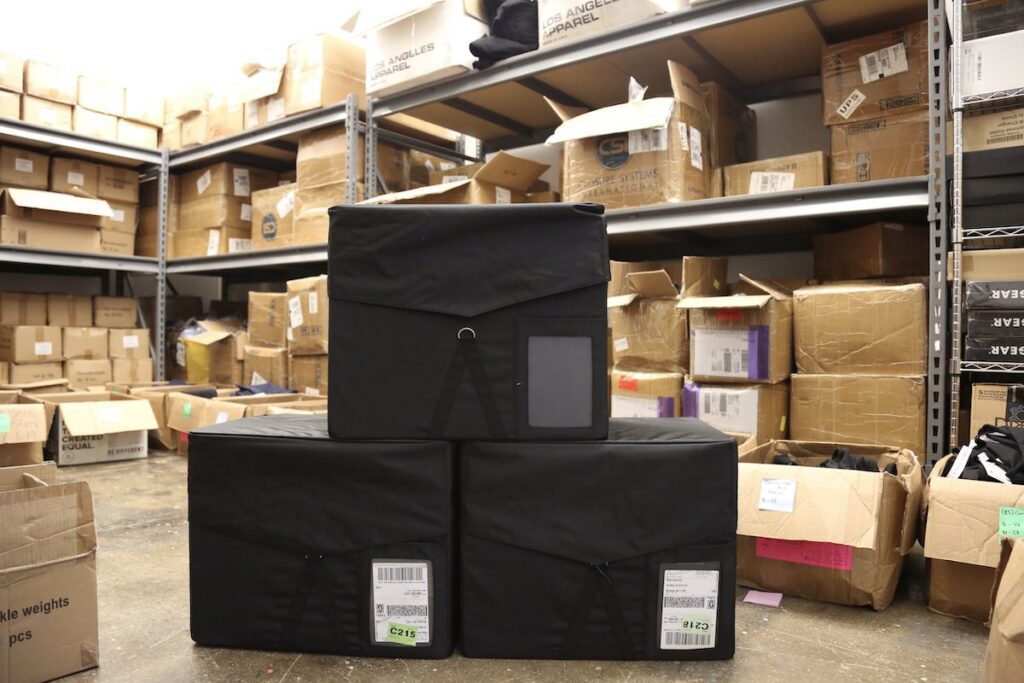
The company provides sturdy returnable bags, boxes and mailers that replace single-use packaging and are sent back into reuse cycles after delivery.
Living Packets are smart, reusable parcels with sensors and geo-tracking that eliminate packaging waste, protect deliveries, and simplify delivery management.
Milk Cartons from Paperboard
Tetra Pak produces a gable-top milk and juice carton made entirely from paperboard layered with polyethylene. The paper comes from Forest Stewardship Council certified sustainably managed forests.
The polyethylene coating is thin yet strong, requiring 40% less material than a 100% polyethylene carton. The cartons are lightweight and ship flat to retailers, reducing transportation emissions. They are also recyclable where facilities exist.
The Pure-Pak from ELOPAK uses 75% recycled paper content from FSC certified sources and recycled polyethylene. This makes the cartons widely recyclable.
Minimal and Eco-Conscious Design
Lush, a cosmetics company, is known for its naked packaging concept. Many of their products, such as solid shampoos and conditioners, are sold without traditional packaging, minimizing waste and promoting a more eco-conscious approach.
noissue offers custom branded sustainable packaging including compostable mailers, boxes, tape, and tissue paper made from recycled and eco-friendly materials.
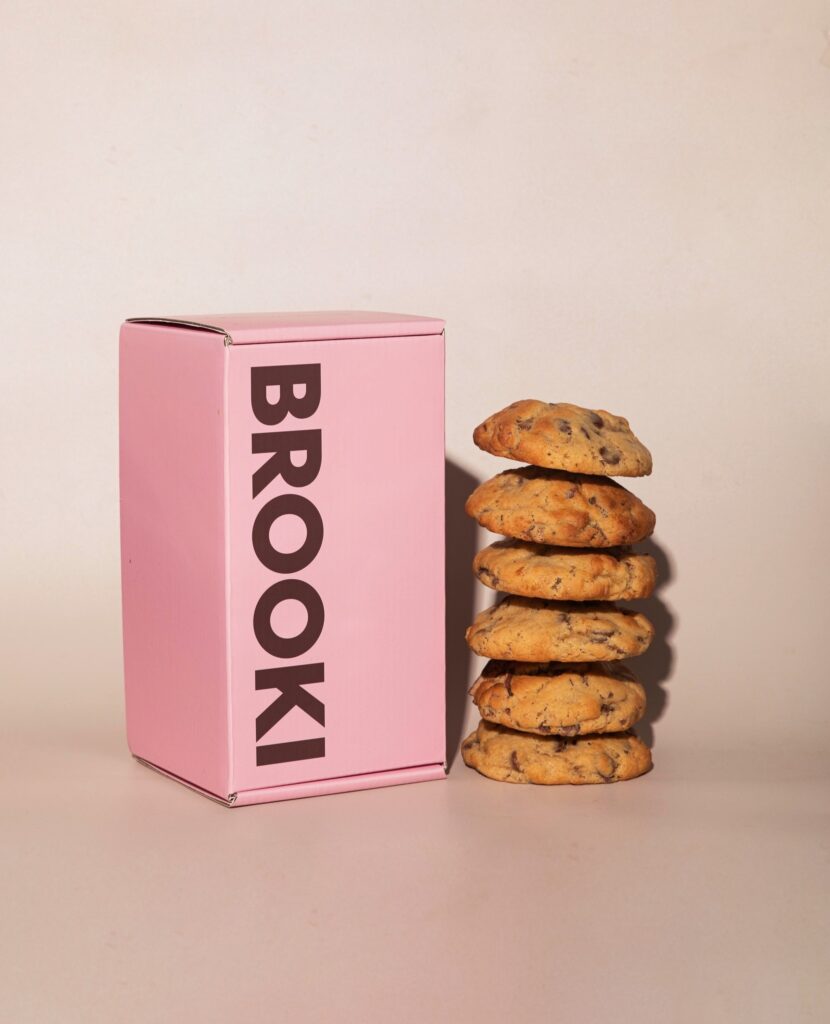
The company enables brands to reduce their environmental impact through renewable plant-based packaging printed with non-toxic inks.
Stores like Unpackt and The Zero Waste Store have adopted a minimal and eco-conscious design by offering a range of groceries without conventional packaging. Customers bring their own containers to fill, reducing single-use packaging waste.
Bee’s Wrap offers a sustainable alternative to plastic wrap with its beeswax-coated fabric wraps. These wraps are reusable, washable, and biodegradable, providing an eco-conscious solution for food storage.
TemperPack is a company that makes insulated packaging made entirely from recycled and recyclable materials. Its flagship product is ClimaCell, a thermal liner that can be used to ship perishable foods, pharmaceuticals, and other temperature-sensitive products.
ClimaCell is made from a proprietary blend of plant-based fibers and renewable starch, and it is fully curbside recyclable.








